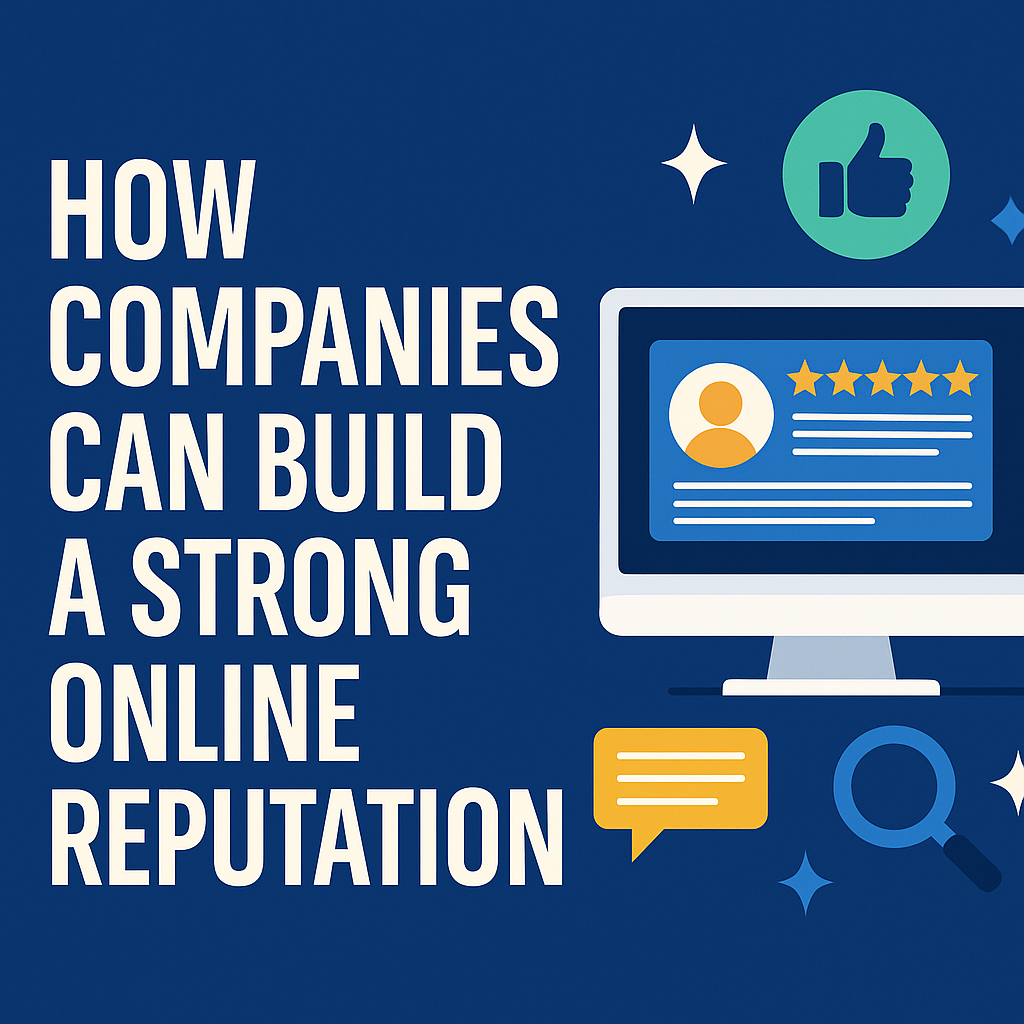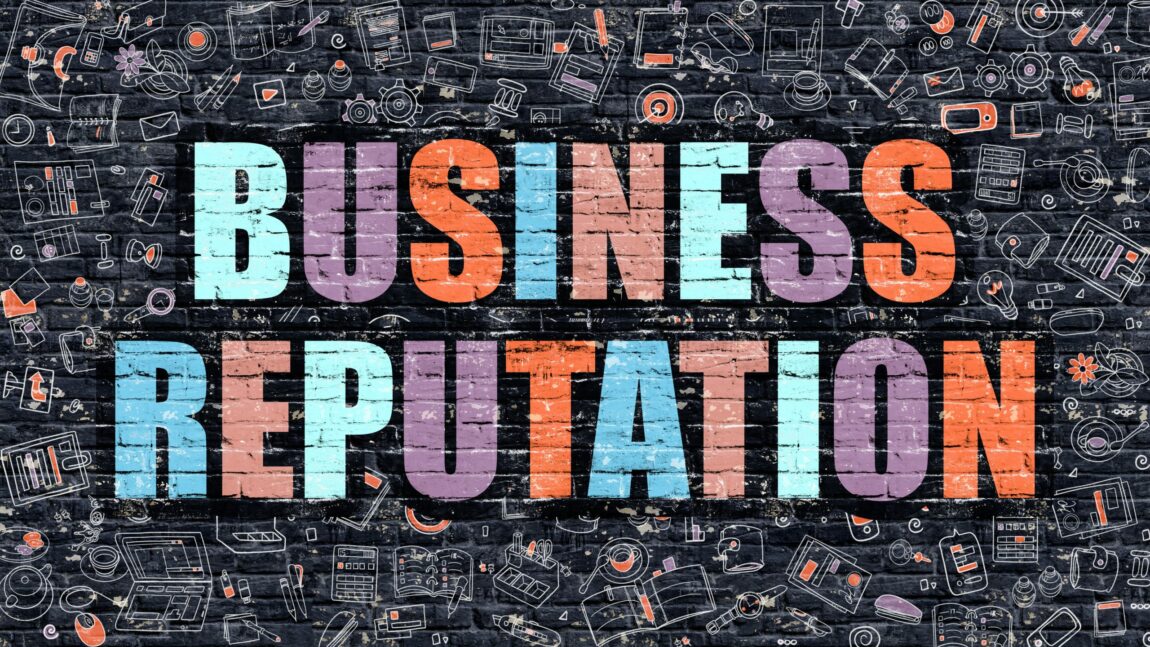Estimated reading time: 5 minutes
A strong brand reputation is a critical asset for any business. Today, online perception is often the first impression a customer, partner, or investor receives. Whether you’re launching a new product, expanding into a new market, or trying to gain investor interest, your reputation speaks before you do.
This guide explores strategic, actionable methods for creating and maintaining a powerful online reputation that attracts trust, credibility, and long-term success.
Table Of Content
Why Brand Reputation Matters
When your brand has a trusted online presence, the benefits are clear:
- Higher search engine rankings
- Increased customer acquisition and retention
- Stronger investor and partner confidence
- Positive media exposure
- Brand loyalty and advocacy
Negative impressions, on the other hand, can reduce conversions, spike churn, and even impact stock value. According to Harvard Business Review, companies with a strong reputation can charge premium prices and attract top talent more easily.
Core Pillars of a Company Reputation Strategy
To build a scalable brand reputation, companies must focus on these essential areas:
1. Search Engine Visibility (SEO Reputation)
Your company’s first page of Google is your storefront. Ensure you dominate search results with:
- An optimized company website
- Branded blog content
- Local listings (Google Business Profile, Bing Places)
- High-authority business directories
- News mentions and press releases
Local SEO Tactics for Reputation
- Encourage customer check-ins and location tagging
- Regularly update NAP (Name, Address, Phone Number) data across platforms
- Use schema markup for local relevance
“The best place to hide a negative article is page two of Google—but most users never go there.”
2. Content Strategy
Content builds trust, authority, and brand narrative. Best practices include:
- Publishing thought leadership articles on your blog and LinkedIn
- Sharing whitepapers, case studies, and how-to guides
- Contributing to third-party publications
- Using visuals, videos, and infographics for engagement
- Creating pillar content for long-form SEO impact
Advanced Content Planning Tips:
- Repurpose long-form content into short-form reels or carousels
- Align every content asset with buyer personas
- Optimize for featured snippets in Google
3. Online Reviews & Testimonials
88% of consumers trust online reviews as much as personal recommendations. Strategies to manage reviews:
- Ask satisfied customers for Google and Trustpilot reviews
- Respond to all reviews professionally and promptly
- Flag and remove fake or defamatory reviews when applicable
- Highlight testimonials on your website and landing pages
Tools to Manage Reviews:
- Birdeye
- Podium
- ReviewTrackers
Also consider:
- Building an NPS (Net Promoter Score) program
- Creating automated post-sale review request workflows
4. Social Media Authority
Social platforms extend your brand voice. To build trust:
- Maintain active, verified accounts on relevant channels
- Share behind-the-scenes company content
- Participate in trending industry conversations
- Handle complaints with empathy and transparency
Boost your authority with:
- Employee advocacy campaigns
- Regular video and livestream content
- Branded hashtag initiatives
5. Executive and Leadership Branding
A CEO or founder’s online reputation impacts the entire organization. Invest in:
- LinkedIn profile optimization
- Thought leadership on Medium or Forbes
- Speaking engagements and podcast features
- Executive media training and PR outreach
Executive Influence Strategy:
- Publish a monthly executive newsletter
- Create a dedicated section on the website for leadership insights
6. Third-Party Validation
Mentions from credible outlets establish trust faster than advertising.
- Aim for organic press through PR campaigns
- Engage with journalists and niche influencers
- Submit to awards, rankings, and certifications
- Use quotes and badges to enhance trust on your website
PR Tips:
- Build media lists using platforms like Cision or Muck Rack
- Track and measure press performance using Google News API or Brandwatch
Reputation Management Tactics That Scale
Run a Reputation Audit Quarterly
Use tools like:
- Google Search Console
- Brand24
- SEMrush
- Mention
Scan for:
- Negative articles
- Fake listings
- Review sentiment shifts
- Brand mentions
Secure Your Brand Assets
- Register brand domains and social handles across platforms
- Use Google Alerts to monitor brand keywords
- Protect your trademarks and brand visuals
- Monitor impersonation attempts using services like Pimeyes
Be Transparent and Human
Consumers want authenticity. Companies should:
- Acknowledge mistakes publicly
- Share customer success stories
- Be active in community causes
- Publish executive letters or founder updates
Establish a Crisis Communication Plan
- Create a response framework for PR issues, legal threats, or social backlash
- Draft pre-approved messaging templates
- Assign spokespersons and roles
See our guide to Crisis Communication Tips for Protecting Your Reputation
Advanced Strategies for Building Brand Reputation
Reputation-Focused SEO Campaigns
- Create 10+ pieces of content optimized for your company name and keywords
- Use internal linking to authority pages
- Build backlinks from industry-relevant websites
- Target review aggregator platforms with branded pages
Video Marketing for Brand Trust
- Use customer testimonials in video format
- Create behind-the-scenes videos about your team and values
- Launch an educational YouTube channel around your niche
Executive Interviews and Podcasts
- Pitch your founder or CEO to podcast hosts and YouTube channels
- Feature interviews in company newsletters and PR kits
- Embed interview clips in your About page and career page
Participate in Community and Industry Events
- Sponsor or speak at conferences
- Support local events or charitable initiatives
- Share these efforts across your brand channels
- Invite media coverage and user-generated content from these activities
Implement Internal Reputation Training
Your employees are brand ambassadors. Offer:
- Social media guidelines
- Customer communication training
- Employer branding campaigns
- Internal feedback and review processes
How Defamation Defenders Helps Companies Build Reputation
Whether you’re starting fresh or recovering from a crisis, Defamation Defenders offers custom strategies to:
- Improve search visibility
- Suppress negative press or reviews
- Build leadership authority online
- Monitor reputation in real time
Our tools include:
- Content creation
- SEO mapping
- Court-backed removal requests
- Review generation campaigns
📞 Request a Free Reputation Consultation
Frequently Asked Questions (FAQ)
Typically 3–6 months for foundational presence, and 6–12 months for consistent brand authority.
Yes—recovery requires a mix of content strategy, SEO, review management, and PR support.
Legal takedowns and suppression strategies can neutralize competitor attacks.
Absolutely. Startups without a reputation plan are at greater risk during growth phases or funding rounds.
Not necessarily. Plans scale based on goals, and many services yield measurable ROI over time.
A strong reputation drives partner trust, accelerates deals, and supports RFP success.
Related Contents:
Works Cited (MLA Format):
-
Harvard Business Review. “Reputation and Trust in Business Success.” https://hbr.org
-
Pew Research Center. “Consumers and Online Reputation.” https://www.pewresearch.org
-
Google Support. “Improving your business presence online.” https://support.google.com
-
Edelman. “2023 Trust Barometer.” https://www.edelman.com/trust-barometer





